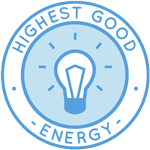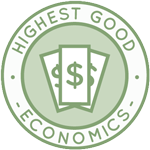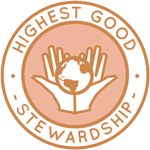Creating a New Sustainability Paradigm – One Community Weekly Progress Update #448
From our perspective, creating a new sustainability paradigm is possible if we make it easy enough, affordable enough, and demonstrate it as attractive enough to spread on its own.
One Community is making this new paradigm “easy enough and affordable enough” by developing open source and free-shared DIY-replicable sustainability components covering food, energy, housing, education, for-profit and non-profit economic design, social architecture, fulfilled living, global stewardship practices, and more.
We will demonstrate it as “attractive enough to spread on its own” by building One Community as the first example of the more enjoyable, healthier, and enriching lifestyle that is possible when you combine all of these components.
- Here’s our project overview
- Here’s our world-change methodology
- Here’s how this becomes self-replicating
- Here’s how we are open source and free-sharing all the do-it-yourself designs

OUR MAIN OPEN SOURCE HUBS
Click on each icon to be taken to the corresponding Highest Good hub page.
One Community’s physical location will forward this movement as the first of many self-replicating teacher/demonstration communities, villages, and cities to be built around the world. This is the October 24th, 2021 edition (#448) of our weekly progress update detailing our team’s development and accomplishments:
Creating a New Sustainability Paradigm
One Community Progress Update #448
DONATE | COLLABORATE | HELP WITH LARGE-SCALE FUNDING
CLICK HERE IF YOU’D LIKE TO RECEIVE AN EMAIL EACH WEEK WHEN WE RELEASE A NEW UPDATE
YOU CAN ALSO JOIN US THROUGH SOCIAL MEDIA
ONE COMMUNITY WEEKLY UPDATE DETAILS
CREATING A NEW SUSTAINABILITY PARADIGM – HIGHEST GOOD HOUSING PROGRESS
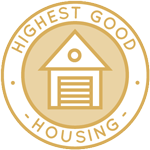 One Community is creating a new sustainability paradigm through Highest Good housing that is artistic and beautiful, more affordable, more space efficient, lasts longer, DIY buildable, and constructed with healthy and sustainable materials:
One Community is creating a new sustainability paradigm through Highest Good housing that is artistic and beautiful, more affordable, more space efficient, lasts longer, DIY buildable, and constructed with healthy and sustainable materials:
- Learn about: Our Upcoming Crowdfunding Campaign
- Learn about the different village models: 7 Sustainable Village Models
- Visit the open source portals for the first two: Earthbag Village OS Hub | Straw Bale Village OS Hub
This week the core team expanded Frank’s HVAC document for the Tropical Atrium to include a more in depth explanation of heat transfer. We explored different results from the Soil-Cement spreadsheet to determine what compositions to test for the Stabilized Earth mixtures and emailed the Compression Testing Team their weekly assignments.

Creating a New Sustainability Paradigm – HVAC document for the Tropical Atrium
Jose Luis Flores (Mechanical Engineer) completed his 66th week helping finish the Net-zero Bathroom component of the Earthbag Village. This week Jose Luis completed researching and comparing water pumps for the Net-Zero Bathroom. He researched 10 different pumps with varying specifications and added them to the spreadsheet.
With the information in place, Jose Luis constructed graphs to compare them to the generated volumetric flow rate curve of the system. Based on the graphs he saw an incremental gain of flow rate when comparing more powerful motors. Though a weak motor would suffice initially, the pump would eventually begin to lose power with use and questionable reliability is also an issue.
Due to this, he chose the Speroni KPM50 as the motor to be used. The other benefit of this model is its compact design and ease of installation. Jose Luis began to analyze where the pump could be placed to optimize its effectiveness and ease of maintenance. The pictures below show some of this work.
Aidan Geissler (Sustainability Researcher) completed his 23rd week helping with 2nd-to-final review, feedback, and content editing that is now focused on the Most Sustainable Insulation tutorial. This week Aidan finished reviewing and revising all the content on the Most Sustainable Insulation Webpage.
He spent extra time updating the FAQ section, which included ranking the products based solely on each of the 5 different categories of scoring criteria (Health & Safety, Sustainability, Cost, DIYability, and Durability). Aidan also completed adding additional Resource links, and backed up the resources. Below are some images related to this work.
Daniela Andrea Parada (Civil Engineering Student) completed her 17th week helping with the Sustainable Roadways, Walkways, and Landscaping tutorial development, mainly focused now on the Earthbag Village components. This week Daniela started her work by transferring information from her original excel sheet to the master excel sheet.
She then uploaded the updated PDFs and AutoCAD files to the dropbox folder. Throughout this week Daniela wrote new content and calculated new values for the water catchment system of the Earthbag Village. This included measuring surface areas where rainwater runoff would occur.
In addition, Daniela included a 2 foot rock swale into the stormwater management AutoCAD in order to account for excess runoff when the roadway is saturated. She then read through and collected integral information from an article regarding water harvesting opportunities for rural roads.
Lastly Daniela worked on recording videos for grey water harvesting that were not downloadable. Pictures below are related to this work.
Shreyas Dayanand (Battery Research Engineer) also completed his 14th week helping with the solar microgrid design specifics related to electric vehicles and battery sizing. This week Shreyas worked on the areas that required changing with respect to content, editing, and clarifications in the final report document.
He addressed most of the comments and started making the required changes. Shreyas researched case studies on Vehicle-to-Grid applications and added links to the same in the document, worked on gathering more information regarding the Tesla wall connector that will be used to charge the EVs, and also attempted to get more information regarding the commercials for the previously selected golf carts.
Pictures below are related to this work.
And Emmanuel Okwechime (Mechanical Engineer) started working on the plumbing drawing for the Net-zero Bathroom component of the Earthbag Village. There were slight issues with the dimensions for the plumbing renderings on autoCAD so he drew out a rough shape of the pipes and connecting junctions.
The drawings were done on a new version of the floor plan to avoid mistakes on the original. Pictures below show some of this work.
CREATING A NEW SUSTAINABILITY PARADIGM – DUPLICABLE CITY CENTER PROGRESS
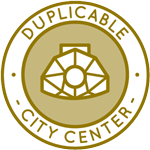 One Community is creating a new sustainability paradigm through a Duplicable and Sustainable City Center that is LEED Platinum certified/Sustainable, can feed 200 people at a time, provide laundry for over 300 people, is beautiful, spacious, and saves resources, money, and space:
One Community is creating a new sustainability paradigm through a Duplicable and Sustainable City Center that is LEED Platinum certified/Sustainable, can feed 200 people at a time, provide laundry for over 300 people, is beautiful, spacious, and saves resources, money, and space:
- Learn about this building and it’s function: Duplicable City Center Open Source Hub
This week Ian Oliver Malinay (Energy Modeler/Analyst) completed his 33rd week helping run the energy analysis calculations to help us achieve LEED Platinum status for the Duplicable City Center. This week, Ian finished the latest draft of the energy modeling narrative report for Duplicable City Center.
This report is necessary for LEED certification of the building. He completed the energy modeling guidelines following the ASHRAE 90.1 procedure and also attended to questions on the documents from the team. Please see below related screenshots of this work.
Luis Manuel Dominguez (Research Engineer) completed his 25th week helping with research related to the City Center Eco-spa designs. This week Luis finalized his selection of the spa pump for the City Center Spa design. After considering a multitude of variables and determining which ones offer the largest impact to our system, he was able to come to a decision on what worked best for the system.
The most important things to consider were energy efficiency, design compatibility, and performance. This combination had many solutions, and there could possibly be better, but after extensive research he found what he believes will be the best for our design.
Looking forward, selection of the blower and some final components is next, while also planning to begin the design of the controls system for all of the elements of our system. Pictures below are related to this work.
Venus Abdollahi (Architectural Designer) completed her 14th week helping finish the Duplicable City Center designs. This week, Venus worked on section A_A, editing it according to the new cut line and new positions of the stair. She checked the floor heights and added furniture to the section. Since the structure isn’t complete yet, Venus plans to come back to this section and add columns later. See pictures below.
And Carlos Lillo (Engineering Technician) completed his 13th week helping with the pallet furniture designs for the Duplicable City Center guest rooms. Carlos continued improving the Pallet Bed render by integrating Jae’s feedback. He generated a new segment using the transparency effect used in almost every Layer of the joint.
Now the render has one single visualization for the internal brackets and screw animations. Pictures below are related to this work.
Xuanji Tang (Architectural Designer) completed her 8th week working on Duplicable City Center architectural review and updates related to the structural code. This week she moved the North stair closer to the Dining Dome and confirmed that we used 3-run stairs for the exit staircase.
Xuanji had a meeting with the structural engineer and added columns to the current floor plans and started moving the walls if columns blocked them. Pictures below are related to this work.
And George Koshy (Design Engineer) completed his 6th week working on the Duplicable City Center connectors we’ll use to build the domes. This week, George compiled all the details and results of the tests conducted. He created a report with a better explanation and understanding of the design process with assumptions, a problem statement, and concerns.
George reattempted larger displacement tests on the new bracket design. He also tested a new bracket design using a quarter inch steel plate. Simulations were run to analyze stress and displacement. The center hub was tested again with the new thicker bracket to understand displacement. The pictures below relate to this work.
Huiya Yang (Volunteer Architectural Designer) completed her 5th week working on the Duplicable City Center architectural review and updates related to the structural code. This week Huiya had a few meetings with Xuanji and Yuxi to discuss the right location of staircases in the Laundry based on the codes and structural requirements.
She also started to work on the 2nd-floor plan updates in order to coordinate with the existing column system. Pictures of some of this work are below.
Bryan Lee Budiman (Industrial Designer) completed his 3rd week working on the Duplicable City Center dormer assembly instructions. This week, Bryan focused on researching possible updates to the roof, updating the previous SketchUp and AutoCAD files, watching a lot of Youtube tutorial videos on AutoCAD, and ideating in Rhino3D.
He then reanalyzed and recalculated the design and created the assembly instructions on Google Slides with a new layout. The pictures below share some of this developing work.
Yuxi Lu (Architectural Designer) also completed her 3rd week working on the Duplicable City Center architectural review and updates related to the structural code. This week Yuxi continued to work on stair variations of 3-flight and 2-flight combinations. There was also a big discussion on needing more means of egress due to the large occupancy, especially for the Social and Dining Domes.
Issues with displacement of columns during CAD edits were also discussed. After verification, there were still a few structural and architectural/furniture conflicts, and a larger conflict with the Living Dome 2nd floor. Yuxi proposed several sketches and finalized a plan for the living space. The next step is to put the not-to-scale sketch into actual measurements.
Pictures of some of this work are below.
CREATING A NEW SUSTAINABILITY PARADIGM – HIGHEST GOOD FOOD PROGRESS
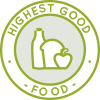 One Community is creating a new sustainability paradigm through Highest Good food that is more diverse, more nutritious, locally grown and sustainable, and part of our open source botanical garden model to support and share bio-diversity:
One Community is creating a new sustainability paradigm through Highest Good food that is more diverse, more nutritious, locally grown and sustainable, and part of our open source botanical garden model to support and share bio-diversity:
- Learn about the structures: Hoop House Hub | Aquapini & Walipini Open Source Hub
- See what we’ll be growing: Gardens & Hoop Houses | Large-scale Structures | Food Forest | TA
This week the core team continued working on the Chicken Coop Assembly document. We continued adding detailed images and step-by-step instructions for installation of roof felt. We also put descriptions for installation of rake drip edges for east/west sides over the roof felt and the south-wall drip edge over the rake drip edge parts.
We then added detailed images with supporting text for metal panel installation. Pictures below are related to this work.
Another team member worked on the sequential steps for chicken coop rafter placement, sequential installation steps for the drip edge, water and ice shield, and roofing. We reviewed 3 roofing videos related to this so we could design it appropriately.
Qiuheng Xu (Landscape Designer) also completed her 55th week volunteering, now helping with the Aquapini & Walipini external landscaping details. This week Qiuheng optimized the SketchUp model as it is too big after combining the landscape, structures, and inside details. She adjusted the new solawrap texture so its texture can be seen in the video walkthrough.
The N,S,E,W letters are outlined with a different color brick. She also fixed the texture conflict in front of one of the structures. Pictures below are related to this.
Frank Roland Vilcapaza Diaz (Mechanical Engineer) completed his 16th week helping with the Aquapini & Walipini and Tropical Atrium climate battery designs. This week Frank studied the condensation effects that air will have on the infiltration rate and thus losses of energy due to water condensing.
Frank researched ways to reduce the losses due to such a phenomenon. Moreover, an online calculator was used for standard home HVAC loads to have a rough, order of magnitude comparison with numbers calculated for our design. The pictures below relate to this.
And Brian Storz (Culinary Project Manager) completed his 6th week helping lead the completion of the Transition Food Self-sufficiency Plan, Transition Kitchen designs, Food Procurement and Storage plan, and related menu and meal plans. Brian started this week with a new intern from Escoffier Culinary School.
Working with this first intern has been a rewarding experience and he looks forward to having more interns to teach. He also re-worded the ad for the culinary program and worked on recipes this week that included Grilled Pineapple Ribs, Basque Chicken and Vegetable soup, and a vegan Borscht. Below are some images related to this work.
CREATING A NEW SUSTAINABILITY PARADIGM – HIGHEST GOOD EDUCATION PROGRESS
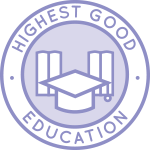 One Community is creating a new sustainability paradigm through Highest Good education that is for all ages, applicable in any environment, adaptable to individual needs, far exceeds traditional education standards, and more fun for both the teachers and the students.
One Community is creating a new sustainability paradigm through Highest Good education that is for all ages, applicable in any environment, adaptable to individual needs, far exceeds traditional education standards, and more fun for both the teachers and the students.
This component of One Community is about 95% complete with only the Open Source School Licensing and Ultimate Classroom construction and assembly details remaining to be finished. We’ll report on the final two elements to be finished as we develop them.
With over 8 years of work invested in the process, the sections below are all complete until we move onto the property and continue the development and open sourcing process with teachers and students – a development process that is built directly into the structure of the education program and everything else we’re creating too:
- Program Overview: Education Open Source Hub
- How the components work together: How to use the Education for Life Program
- Lesson Plans for Life – Lesson Plans How-to
- Foundations of Outstanding Leaders, Teachers, and Communicators
- Curriculum for Life
- Teaching Strategies for Life
- Learning Tools and Toys for Life
- Evaluation and Evolution
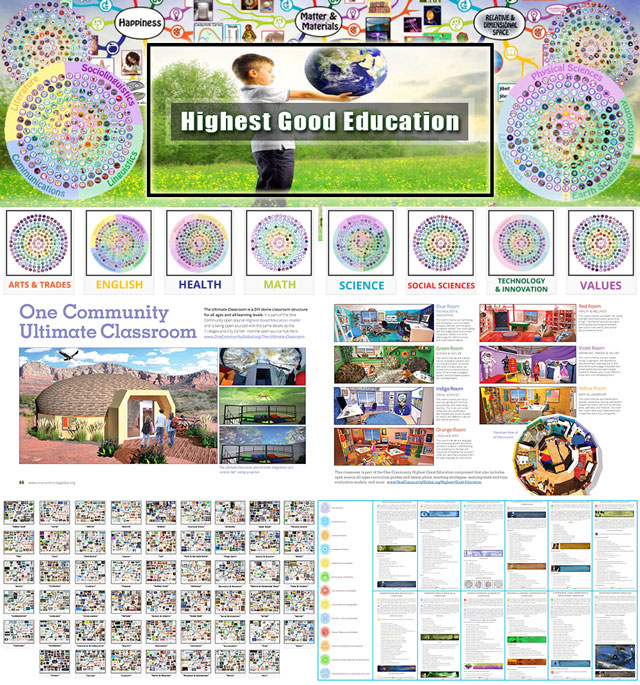
Highest Good Education: All Subjects | All Learning Levels | Any Age – Click image for open source hub
CREATING A NEW SUSTAINABILITY PARADIGM – HIGHEST GOOD SOCIETY PROGRESS
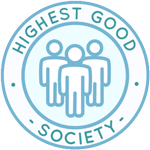 One Community is creating a new sustainability paradigm through a Highest Good society approach to living that is founded on fulfilled living, the study of meeting human needs, Community, and making a difference in the world:
One Community is creating a new sustainability paradigm through a Highest Good society approach to living that is founded on fulfilled living, the study of meeting human needs, Community, and making a difference in the world:
- Read the Highest Good society overview: Highest Good Society
- Learn about the model for fulfilled living and sharing: A Day in the Life
- Learn about the 4 economic models: RBE | For-profit | Non-profit | Entrepreneurship
- Learn about our open source community collaboration and management software: The Highest Good Network
This week the core team completed 23 hours managing One Community volunteer-work review not included above, emails, social media accounts, and interviewing and getting set up new volunteer team members. Also additional testing and bug identification and correction confirmations for the Highest Good Network software were completed. Pictures below show some of this.
Guy Grossfeld (Graphic Designer) continued his help with badge design for the Highest Good Network software. This week, Guy finished integrating feedback on previous badges and finished both the Stewardship category and the Economics category. You can see some of the related conversations and design process below.
Aleksandra “Alex” Gorkovenkø (Graphic Designer) also completed her 11th week working on images for our open source social media strategy. This week, Alex corrected 12 posters from previous weeks using new images and slogans. 33 new posters were also created. Images for the new posters were taken from previous work done by Jaime and images found on Pixabay.
Alex also made a bunch more new slogans and submitted them for review. Some of our favorite approved posters are below.
Hannah Gardner Hattersley (Software Engineer) completed her 5th week working on the Highest Good Network software. This week, Hannah began debugging the badge issues after spending a week or so understanding the logic of the code. She identified an issue in the logic of the minimum-hours badge that was also found in the x hours for x weeks streak badge.
It is likely that this bug is present in other badges that do not drop off as higher level badges are awarded and she will examine the logic of other badges to confirm and address this in the upcoming week. Pictures below are related to this work.
Pranav Borole (Software Engineer) also completed his 4th week working on the Highest Good Network software. This week Pranav worked on solving previous PR’s issues, he also successfully debugged and implemented fixes for cross browser compatibility. Pranav then worked on debugging build errors in CircleCI to figure out build deployment errors in previously merged PRs.
On the side, he is continuing implementing a timezone feature to detect location based timezone in the Create New User form. Pictures of some of this work are below.
AND WE PRODUCED THIS WEEKLY UPDATES BLOG – CLICK HERE TO SUBSCRIBE
FOLLOW ONE COMMUNITY’S PROGRESS (click icons for our pages)
INVESTOR PAGES
GET INVOLVED
DONATE | WAYS ANYONE CAN HELP | MEMBERSHIP
CLICK HERE FOR ALL PAST UPDATES
 One Community
One Community